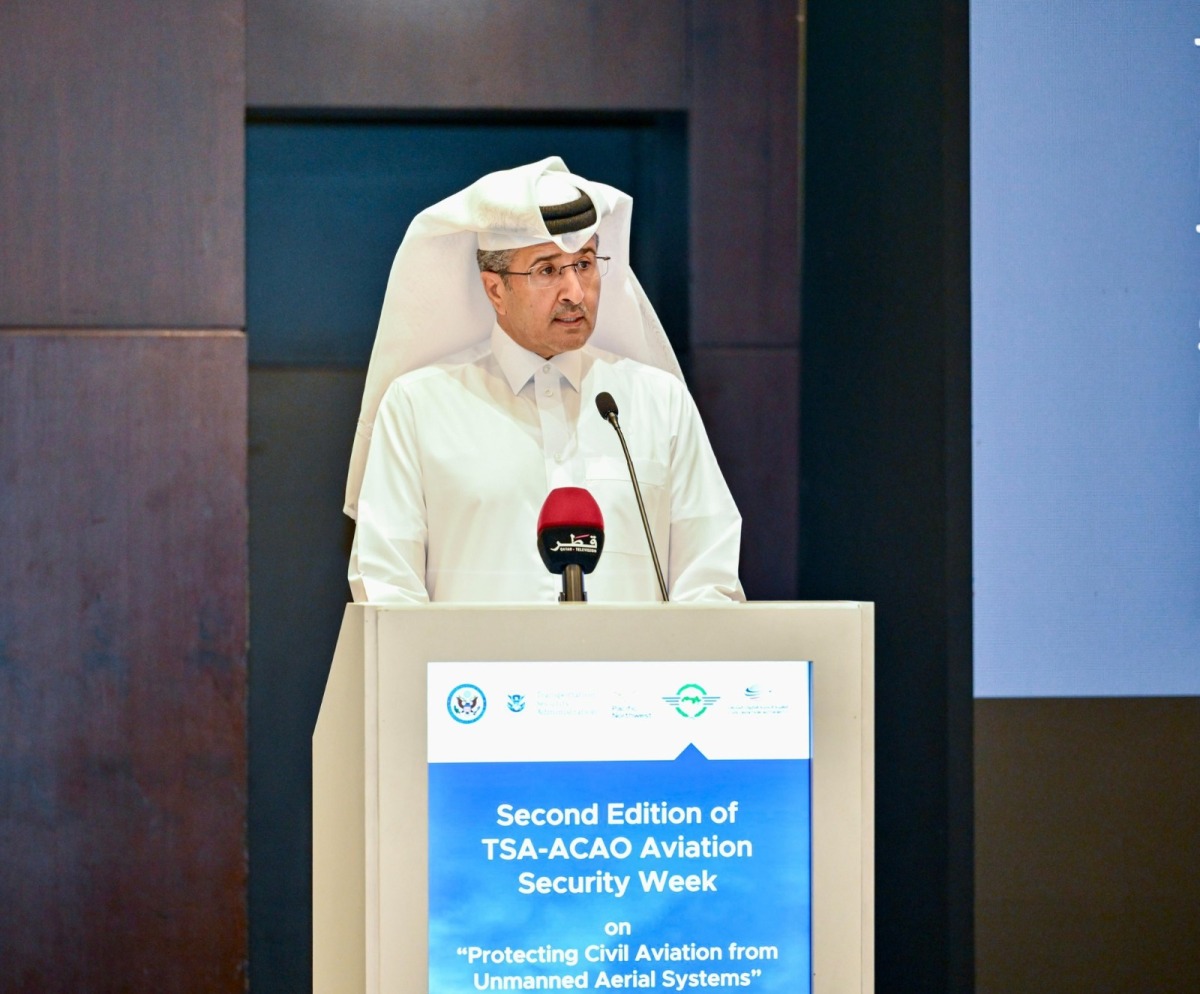The Civil Aviation Security Week was inaugurated in Doha by Mohamed bin Faleh Al Hajri, in charge of managing Qatar Civil Aviation Authority (QCAA). The event, held under the theme “Protecting Civil Aviation from Unmanned Aerial Systems,” is hosted by QCAA and organized by the Arab Civil Aviation Organization (ACAO) and the US Transportation Security Administration, under the patronage of HE Minister of Transport Jassim bin Saif Al Sulaiti. The week-long event, running from November 11 to 14, 2024, features the participation of 15 countries and aims to address the challenges posed by modern technology, particularly drone systems, in aviation security.
During the opening session, Al Hajri highlighted the importance of protecting aviation in the face of unprecedented progress and challenges brought by modern technology. He emphasized the need for establishing legal and regulatory frameworks to ensure the optimal use of drone systems while mitigating potential security risks. Al Hajri also stressed the importance of achieving aviation security through a unified international response and consensus in policies and procedures, emphasizing the need for close cooperation between countries and international organizations to develop advanced security strategies.
The Civil Aviation Security Week provides an important opportunity for countries to exchange experiences and collaborate on enhancing aviation security in the region and around the world. The event serves as a platform to discuss various topics, including the threats of drones to aviation, ways to protect the vital infrastructure of civil aviation, and strategies to enhance cooperation in the field of aviation security. By bringing together experts, officials, and stakeholders from various countries, the event aims to facilitate discussions and initiatives that contribute to safeguarding the safety of global airspace.
The opening of the Civil Aviation Security Week was attended by HE US Ambassador to Qatar Timmy Davis and several senior officials from the event’s organizing entities. The participation of representatives from 15 countries underscores the international significance of the event and the collective commitment to addressing aviation security challenges. The presence of key stakeholders and experts from different countries highlights the importance of collaboration and knowledge-sharing in developing effective security measures to protect civil aviation from emerging threats, such as unmanned aerial systems.
The theme of “Protecting Civil Aviation from Unmanned Aerial Systems” underscores the growing concerns surrounding the use of drones in the aviation sector. While drones offer opportunities for innovation and efficiency, they also pose security risks that need to be addressed through comprehensive strategies and regulations. By focusing on this theme, the Civil Aviation Security Week aims to raise awareness of the potential threats posed by drones and explore ways to mitigate these risks effectively. The event serves as a platform for discussions, workshops, and initiatives that aim to enhance aviation security and ensure the safe operation of global airspace amidst technological advancements.
In conclusion, the Civil Aviation Security Week in Doha provides a valuable opportunity for countries to come together and collaborate on strengthening aviation security measures. By addressing the challenges posed by modern technology, particularly drones, the event aims to facilitate discussions on ways to protect civil aviation from emerging threats and enhance cooperation in the field of aviation security. Through the participation of various countries and stakeholders, the event seeks to promote dialogue, knowledge-sharing, and the development of advanced security strategies to safeguard the safety of global airspace.











